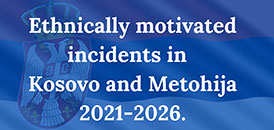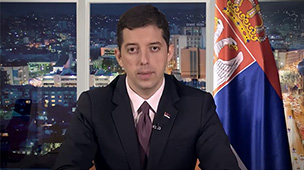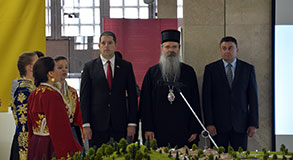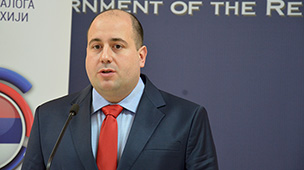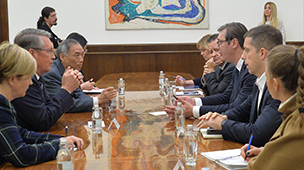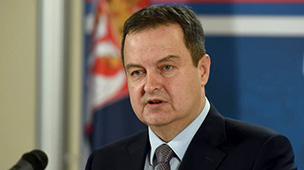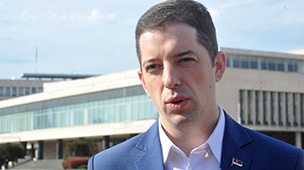Dačić: The number of countries that recognized the unilaterally proclaimed independence of Kosovo will decrease below 100
Priština should get used to the fact that in the world there are some states that believe their decision to recognize Kosovo was wrong, stated the Minister of Foreign Affairs, Ivica Dačić, today.

The press conference was held at the villa “Mir”, after the meeting with the Ministers of Foreign Affairs of Italy and Albania, where Dačić refuted the statement of Behgjet Pacolli who said that Dačić allegedly offers weapons in exchange for the withdrawal of the decision on recognition of Kosovo’s independence.
“Yes, of course, we are even offering atomic bombs”, the head of the Serbian diplomacy ironically retorted.
“If someone asks why a specific country withdrew its recognition, than Serbia should ask in turn why someone recognized Kosovo in the first place. I would like for Serbia to have large amounts of weaponry at its disposal. Than we would be perceived in a different manner…”, Dačić stated.
The head of Serbian diplomacy advised Pacolli to avoid finding excuses for the local public and noted that everyone should focus on their own duties.
“I think that this process is not finished, which is precisely why some states are questioning their decisions. I cannot fathom the interest behind Costa Rica or Afghanistan’s decision to recognize Kosovo. Besides, maybe Pacolli perceived this in categories he is familiar with and through usage of means he resorted to when he spoke with officials of specific states”, Dačić noted.
As he put it, he is not angry with Pacolli, but he nonetheless heeded the latter to be a sport and accept the fact that some states are withdrawing the recognition of the unilaterally recognized independence of Kosovo.
“It will decrease bellow 100. I guarantee you that”, Minister Dačić concluded.
Dačić spoke with Czech MPs about the withdrawal of Kosovo’s recognition
First Deputy Prime Minister and Minister of Foreign Affairs, Ivica Dačić, held a meeting with the members of the delegation of Czech Social Democratic Party and discussed with them the initiative of the said party pertaining to the petition to withdraw the Czech recognition of Kosovo’s independence.
The delegation of the Czech Social Democratic Party was led by the member of the Czech Parliament, Jaroslav Foldyna, whereas the former Minister of Foreign Affairs, Jan Kavan and a movie director, Vaclav Dvorak also attended the meeting, as stated in the press release by Dačić’s cabinet.
Foldyna’s initiative for signing the petition on the withdrawal of the Czech recognition of Kosovo’s independence was launched during this year’s protests held in Prague on the occasion of the marking of the tenth anniversary of the unilaterally proclaimed independence of Kosovo.
The interlocutors briefed Dačić that the aim of launching the initiative was to inform both Czech and wider public that the unilaterally proclaimed independence of Kosovo was not in accordance with international law and that Czech Republic, which was among the first states to recognize the Kosovo’s independence, made a grave mistake by doing so.
In order to rectify the consequences of such a decision, they organized study visits for Czech reporters to the Serbian enclaves in Kosovo and Metohija so that they could see first-handedly the real state of human rights of Serbs who live in the southern Serbian province and thusly, drew public’s attention to the fact that the state is much worse as opposed to what is being presented to the said public.
According to the press statement, Dačić thanked the members of the Czech delegation for everything they have done so far, but as well for everything they are doing for Serbia now with a goal to publicize the truth regarding the issue of Kosovo and Metohija whose proclamation of independence constitutes violation of international law and the UN Security Council’s Resolution 1244.
Members of the Czech delegation firmly believe that conditioning Serbia to recognize Kosovo as an independent state in order for it to access the EU represents a special kind of blackmail.
As stated in the press release, they accept the possibility of reaching the agreement between Belgrade and Priština, wherein both sides would get something out and lose something out of it, and which would be acceptable for the two.

